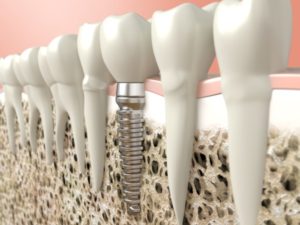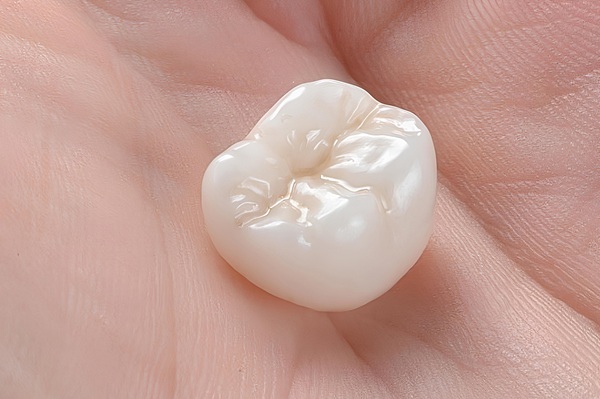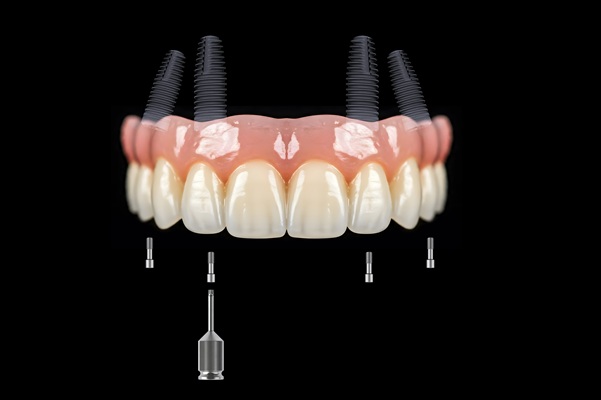Tips for Recovering From a Dental Implant Surgery

Dental implants have the potential to change your life. If you are missing one or several teeth or have badly damaged teeth, it is time to consider the merits of dental implants. The only downside to dental implants is the recovery period.
Follow the tips outlined below to bounce back from dental implant surgery and you will find the recovery period goes much smoother than expected.
Select Your Beverages and Food With Care
Wait until the local anesthetic wears off before consuming food. Stick to cold drinks until the anesthetic has completely faded away. Do not consume hot food or beverages in the day following the dental implant procedure.
Do Not Irritate the Area
A surprising number of patients use their fingers or tongue to touch to dental implants. Most patients do this out of curiosity. Any such disturbance has the potential to cause problems. Even vigorous exercise can aggravate the dental implant. Avoid such exercise across the initial 48 hours following the surgery and your mouth will gradually progress to the point that it once again feels normal.
Minimize Swelling
There might be considerable swelling or even some bruising in the aftermath of the dental implant procedure. Swelling typically peaks a couple days after the surgery. Do not be alarmed by this phenomenon. The swelling will gradually subside in the ensuing days. The application of ice packs or a bag of frozen corn covered in a towel will help reduce such swelling. Hold the ice or bag of frozen corn/peas to your cheek for 10 minutes. Take a 20-minute break, determine if the swelling has subsided and reapply the ice if the swelling is still present.
You Have the Power to Combat Potential Pain Stemming From Dental Implant Surgery
Pain will not be that big of a deal after you receive dental implants yet there will likely be some slight soreness. Soreness results from just about every surgery, especially the type that takes place in the mouth. This discomfort can be mitigated with painkillers. Use painkillers with regularity at the maximum dose for the first couple of days after the procedure. It will also help to take the initial dose of the painkiller before the local anesthetic has worn off.
Take It Easy!
Activities following surgery must be restricted to your bed or couch for the first day following surgery. If you push too hard with exercise or even something as simple as household chores, you will end up bleeding more than should be necessary. Furthermore, such strenuous activity will likely induce swelling and pain. Be especially careful when getting out of bed. If you stand up too quickly, you will be lightheaded.
It is also important to note physical activity will burn the limited calories you have in your system following dental implant surgery. Your diet will be limited after the procedure so do your best to avoid burning an excess of calories. Do not feel bad about skipping your workout! You can segue right back into your regular exercise schedule after a couple days pass.
Please call Advanced Family Dentistry today at (520) 353-3002!
Recent Posts
Learning about the many benefits of dental implants is something everyone who is missing teeth needs to do before making a final tooth-replacement choice. The fact that there have been many improvements in the dental niche over recent years means that dental patients have more choices than ever before. Ready to learn more about this…
Before the invention of dental implants, the only options available to replace a lost tooth were dentures or bridges. Today, dental implants offer a solution that looks and feels like a natural tooth. They are attractive and comfortable, and they provide many advantages.If you are considering replacing a lost tooth with an implant, there are…
Dental implants are highly recommended when it comes to replacing missing teeth. These oral prosthetics are surgically inserted into your jawbone, replacing the root that came out when you lost a tooth.Replacing lost teeth with dental implants requires minor oral surgery, and the implant is given up to six months to fuse with surrounding bone…
Tooth loss is common, and the American College of Prosthodontics estimates that 178 million Americans are missing at least one tooth, and about 40 million Americans are missing all of their teeth. As we age, this oral health issue only gets worse. When you need to replace one or more teeth, you have quite a…


